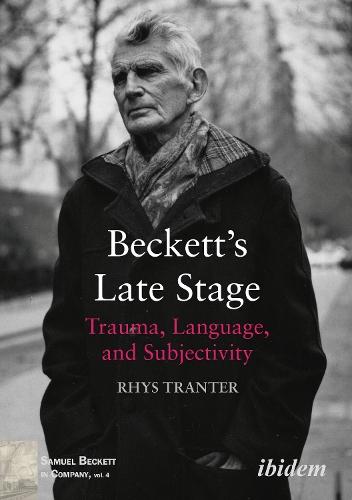Overview
Beckett’s Late Stage reexamines the Nobel laureate’s post-war prose and drama in the light of contemporary trauma theory. Through a series of sustained close-readings, the study demonstrates how the comings and goings of Beckett’s prose unsettles the Western philosophical tradition; it reveals how Beckett’s live theatrical productions are haunted by the rehearsal of traumatic repetition, and asks what his ghostly radio recordings might signal for twentieth-century modernity. Drawing from psychoanalytic and poststructuralist traditions, Beckett’s Late Stage explores how the traumatic symptom allows us to rethink the relationship between language, meaning, and identity after 1945.
Full Product Details
Author: Rhys Tranter ,
Paul Stewart
Publisher: ibidem-Verlag, Jessica Haunschild u Christian Schon
Imprint: ibidem-Verlag, Jessica Haunschild u Christian Schon
Edition: New edition
Weight: 0.319kg
ISBN: 9783838210353
ISBN 10: 3838210352
Pages: 246
Publication Date: 28 February 2018
Audience:
Professional and scholarly
,
Professional & Vocational
Format: Paperback
Publisher's Status: Active
Availability: In Print

This item will be ordered in for you from one of our suppliers. Upon receipt, we will promptly dispatch it out to you. For in store availability, please contact us.
Reviews
We had always suspected that Beckett's destitute characters, his black humour, his bleak one-liners, his cynical minimalism had to do with some form of trauma linked with war-time experiences, but no-one had attempted to read the whole post-war production as a deployment of a phenomenology of trauma. Rhys Tranter is the first to use the whole gamut of protocols developed by trauma studies and bring them to bear on Beckett's canon from the forties to the eighties. The result is a highly rewarding book full of new insights, superb close readings, and poignant meditations on a time of wounds, yet open to a different future. - Prof. Jean-Michel Rabat , University of Pennsylvania
"""We had always suspected that Beckett's destitute characters, his black humour, his bleak one-liners, his cynical minimalism had to do with some form of trauma linked with war-time experiences, but no-one had attempted to read the whole post-war production as a deployment of a phenomenology of trauma. Rhys Tranter is the first to use the whole gamut of protocols developed by trauma studies and bring them to bear on Beckett's canon from the forties to the eighties. The result is a highly rewarding book full of new insights, superb close readings, and poignant meditations on a time of wounds, yet open to a different future.""- Prof. Jean-Michel Rabat�, University of Pennsylvania"
Author Information
Rhys Tranter is a writer and photographer currently based in Cardiff, Wales. His writing has appeared in international publications, including the Times Literary Supplement, and he works on the editorial board of the Samuel Beckett Society. His website at RhysTranter.com promotes literature and the arts to over 10,000 daily subscribers, and was recently selected to join the British Library’s UK Web Archive.




